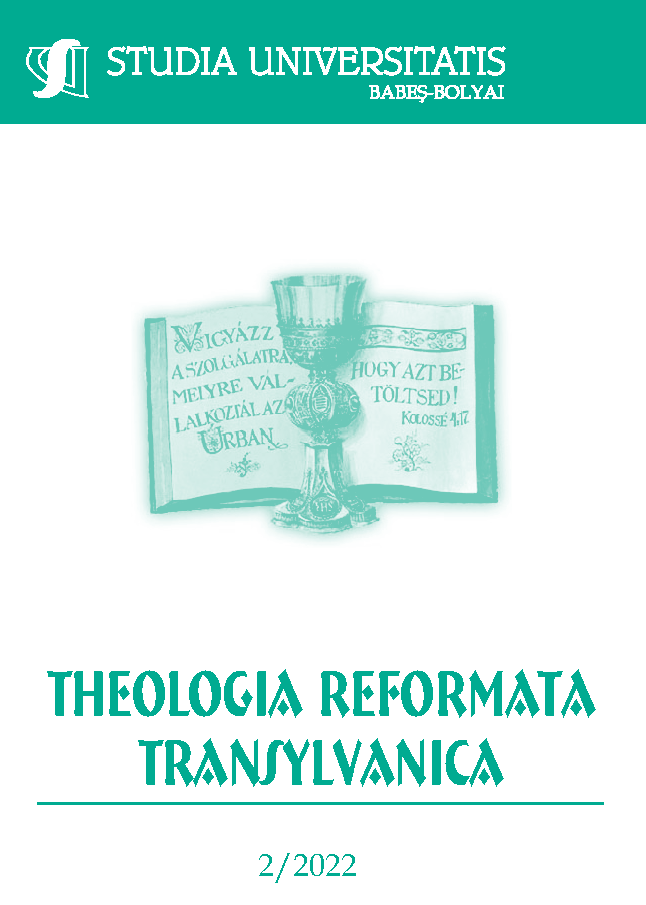Intellektuális akadálymentesítés az oktatásban: problémafelvetés, alternatívák keresése
DOI:
https://doi.org/10.24193/subbtref.67.2.13Keywords:
memorization, knowledge acquisition, thinking, problem solving, independence, practice orientation, internal motivationAbstract
Intellectual Accessibility in Education: Raising the Issue, Searching for Alternatives. Based on the author’s educational and teaching experiences, including a recommended literature, and taking into account the relevant context of the postmodern society (rapidly changing world, rapidly developing sciences, increased amount of but easily/quickly accessible information, communication tools for information dis-semination, etc.), the study considers – and encourages the reader to do the same – the following in terms of both secondary and higher education:
● How and to what extent can we supplement the one-sided memorization of facts and data, the acquisition of lexical knowledge with the technical possibilities of researching and storing information?
● What kind of intellectual abilities and skills, how much independent knowledge is needed today, the development of which should be given greater emphasis?
● How to relieve the burden of a student whose biggest problem is memorization and is this type of relief justified?
● How can the current aspects of accountability and evaluation be supplemented and/or changed accordingly?
She does all of this inspired by the thoughts of some experts in the field, whose works form the basis of this study in addition to the author’s teaching and educational experiences. Although the approach to the topic is basically theoretical, the author tries to shape her professional work according to the outlined perspectives, to which concrete reference is made in the concluding part. The main goal of the study is to encourage further thinking, exchange of opinions, and professional discussions, in addition to raising the issue, going around the topic and drawing attention.
References
ARATÓ Ferenc – VARGA Aranka (2008): Együtt-tanulók kézikönyve – Bevezetés a kooperatív tanulásszervezés rejtelmeibe. Budapest, Educatio Társadalmi Szolgáltató Közhasznú Társaság.
CSÍKSZENTMIHÁLYI Mihály – SCHIEFELE, Ulrich (1993): Die Qualität des Erlebens und der Prozess des Lernens, In: Zeitschrift für Pädagogik. 39. 2. 207–221.
DEZSŐ Renáta Anna (2014): Bevezető, In: Dezső Renáta Anna (szerk.): Differenciált tanulásszervezés a többszörös intelligenciák elméletének alkalmazásával. Megvalósított és reflektált óratervek a PTE tanárképzésében. Pécs, PTE BTK NTI. 3–7.
(2020): Többszörös intelligenciák – egy elmélet születése nyomában, In: Autonómia és felelősség Neveléstudományi Folyóirat. 5. 1–4. 41–53.
FISCHER, Trosten – LEHMANN, Jens (2009): Studienbuch Erlebnispädagogik: Einführung in Theorie und Praxis der modernen Erlebnispädagogik. Bad Heilbrunn, Verlag Julius Klinkhardt.
GARDNER, Howard (2006): Multiple Intelligences: New Horizons in Theory and Practice. [h. n.], Basic Books.
GASKÓ Krisztina (2006): A tanulás pszichológiai értelmezése, In: Nahalka István (szerk.): Hatékony tanulás (A gyakorlati pedagógia néhány alapkérdése, 3. kötet, szerk.: M. Nádasi Mária). Budapest, ELTE PPK Neveléstudományi Intézet. 20–40.
GULO, Alokasih (2022): Some Notes on the Idea of Living Human Document and Its Implications for Pastoral Praxis, In: Eduvest – Journal of Universal Studies. 2. 1. 140–149.
HENTING, Hartmut von (2003): Die Schule neu denken: Eine Übung in pädagogischer Vernunft. Weinheim, Beltz Verlag.
KOLB, David A. (1984): Experiential Learning: Experience as the Source of Learning and Development. Englewood Cliffs, Prentice-Hall.
LUHMANN, Niklas (1982): Funktion der Religion. Berlin, Suhrkamp.
MARZANO, Robert J. – KENDALL, John S. (22007): The New Taxonomy of Educational Objectives. Thousand Oaks, Corwin Press.
MEZŐ Ferenc (2011a): A tehetségek személyiségének fejlesztése, In: Balogh László (szerk.): A tehetség felismerése és fejlesztése (Kézikönyv a tehetséggondozás gyakorlatához). Debrecen, Debreceni Egyetem, Pszichológiai Intézet, Pedagógiai-Pszichológiai Tanszék. 113–128.
(2011b): Interdiszciplinaritás a tehetséggondozásban, In: Balogh László (szerk.): A tehetség felismerése és fejlesztése (Kézikönyv a tehetséggondozás gyakorlatához). Debrecen, Debreceni Egyetem, Pszichológiai Intézet, Pedagógiai-Pszichológiai Tanszék. 216–231.
MEZŐ Ferenc – MEZŐ Katalin – MEZŐ Lilla Dóra (2018): Képességfejlesztő játékok az IPOO-modell aspektusából: a fejlesztésbe integrált diagnosztika lehetősége, In: Különleges Bánásmód – Interdiszciplináris folyóirat. 4. 2. 55–66.
MEZŐ Katalin (2011): A kreativitásfejlesztés kiemelt szerepe, In: Balogh László (szerk.): A tehetség felismerése és fejlesztése (Kézikönyv a tehetséggondozás gyakorlatához). Debrecen, Debreceni Egyetem, Pszichológiai Intézet, Pedagógiai-Pszichológiai Tanszék. 97–112.
MEZŐ Katalin – MEZŐ Ferenc (2014): The IPOO-Model of Creative Learning and the Students’ Information Processing Characteristics, In: Psihološka obzorja / Horizons of Psychology. 23. 136–144.
NEUMANN-WIRSIG, Heidi (2017): Von der Unmöglichkeit zu lehren und dem Ermöglichen von Lernen – Lehrsupervision aus konstruktivistischer Sicht, In: Freitag-Becker, Edeltrud – Grohs-Schulz, Mechtild – Neumann-Wirsig, Heidi (szerk.): Lehrsupervision im Fokus. Göttingen, Vandenhoeck & Ruprecht Verlag. 21–30.
NÉMETH Dávid (2002): Hit és nevelés. Valláslélektani szemléletmód a mai valláspedagógiában. Budapest, Károli Gáspár Református Egyetem Hittudományi Kar.
PECH, Andreas (2019): Theorie und Praxis pastoralpsychologischer Supervision und Lehrsupervision, In: Transformationen (Pastoralpsychologische Werkstattberichte 30). 19. 3–47.
SCHARFENBERG, Joachim (21985): Einführung in die Pastoralpsychologie (UTB 1382). Göttingen, Vandenhoeck & Ruprecht.
SCHWEITZER, Friedrich (mit weiteren Beiträgen von Nipkow, Karl Ernst; Biesinger, Albert; Mette, Norbert; Froese, Regine; Kliss, Oliver; Ziegler, Tobias) (42013): Elementarisierung im Religionsunterricht: Erfahrungen, Perspektiven, Beispiele. (Neukirchener Theologie). Neukirchen-Vluyn, Neukirchener Verlagsgesellschaft mbH.
Internetes hivatkozások:
LENGYEL Zsuzsanna: A többszörös intelligencia elméletének alkalmazása a helyesírás-tanításban. http://www.anyanyelv-pedagogia.hu/cikkek.php?id=289 (utolsó megtekintés: 2022. 07. 10.).
VASS Vilmos: A kreatív iskola. https://www.anyanyelv-pedagogia.hu/cikkek.php?id=374 (utolsó megtekintés: 2022. 07. 14.).
VEKERDY Tamás: A világ és az ember nyilvánvaló titkai. https://www.youtube.com/watch?v=u5f05qWgKcE (utolsó megtekintés: 2022. december 5.).
Konferencia-előadás:
KRASZNAY Mónika (2019): „Hogyan tanulhatunk pasztorálpszichológiát?” XX. századi kérdésfelvetések és elképzelések relevanciája a XXI. század elején Joachim Scharfenberg 35 évvel ezelőtti mérlegelései alapján. Elhangzott: A pasztorálpszichológia harmadik évezred kihívásaira adott válaszai – Konferencia a Magyar Tudomány Ünnepe alkalmából. „Értékteremtő tudomány”. Pünkösdi Teológiai Főiskola, Budapest, 2019. 11. 15.
Downloads
Published
How to Cite
Issue
Section
License
Copyright (c) 2022 Studia Universitatis Babeș-Bolyai Theologia Reformata Transylvanica

This work is licensed under a Creative Commons Attribution-NonCommercial-NoDerivatives 4.0 International License.






